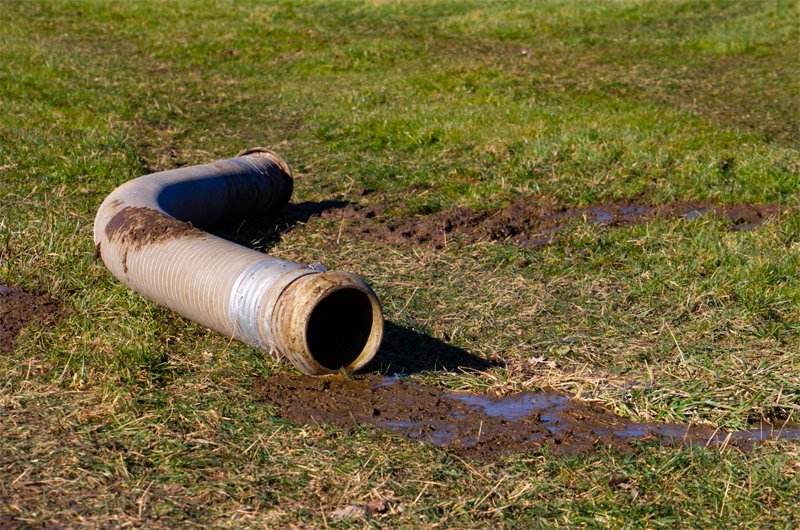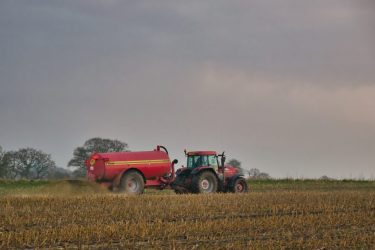All of Wales is now subject to Control of Agricultural Pollution Regulations (CoAP). This means that keeping your water quality high is a priority. The new rules will become more stringent during 2024. Here is a guide to what you’ll need to do to comply, and how we can help you.
CoAP – the new rules for 2024
For the whole of Wales, a more stringent whole farm nitrogen limit from livestock manure of 170kg/hectare will come into effect. Farms must have records of their nutrient figures in place by 31st March 2024.
However, in October 2023, Welsh Government announced extra amendments to the regulations, called the Enhanced Nutrient Management Approach. These will exist for all of 2024.
If you can provide evidence from your records of your farm’s need for more than 170kg nitrogen/hectare from livestock manures, you will be allowed to apply up to up to 250kg/hectare.
What you need to do
To comply with the new rules, you will have to notify Natural Resources Wales before 31st March 2024 that you are following the Enhanced Nutrient Management Approach. In addition, you will have to take extra measures to protect the environment. If your farm is going to be operating at levels over 170kg/hectare you will have to inform Natural Resources Wales of this.
As part of the enhanced approach, fields must be soil tested, and results recorded. This is the best-practice way to establish a baseline value for your farm, to enable you to proceed in an economically and environmentally sustainable way.
Note that phosphate (P) levels will also have to be declared. You will not be able to apply any organic manure to fields that have P levels above 2+.
Welsh Government will publish new information regarding extra measures in due course, probably early in 2024. We’ll keep you updated.
New rules for slurry storage capacity
From 1st August 2024, you must ensure that you have adequate storage, or looking to increase storage to meet your farm’s requirements, so that you can hold at least 5 months’ production.
Don’t forget the closed periods
As I reported in January 2023, in my introduction to Welsh Government’s agricultural pollution regulations, from August 1st 2024 closed periods for spreading nitrogen fertiliser will come into force. The dates that apply to you will depend on your soil types and land categories, as shown here:
Closed periods for sandy/shallow soils
| Grassland | 1st September – 31st December |
| Tillage land | 1st August – 31st December |
Closed periods for other soils
| Grassland | 15th October – 15th January |
| Tillage land | 1st October – 31st January |
Navigating the new rules, and the agri-pollution maze
We’ve been helping Welsh farmers to get up to speed and comply with agri-pollution requirements since they began coming into force in 2021. This has involved measuring, record keeping, devising nutrient management plans (NMPs), and generally taking the stress and confusion out of having to make your farm compliant.
Some farmers have been opting to do this as part of a whole farm technical review. Others have been approaching the farm-pollution issue on its own.
Farming Connect funds 70-90% of costs for soil sampling and NMPs, both for technical action groups’ plans and for individual farms. Speak to your local Farming Connect Development Officer for more information about the initiatives on offer. We help farms to access this funding.
We’ve also been assessing, planning and helping farms to choose the optimal future-proofed slurry storage solutions for their needs.
To find out more about how we can help you, please contact me, Geraint May, for an initial conversation, with no obligations. If you’d like to speak to me directly, my number is 07815 475875.
-
A note about NVZs
Areas susceptible to fertilizer pollution are often referred to by the catch-all phrase Nitrate Vulnerable Zones (NVZs). This term became popular in England a few years ago, but it only covers areas containing surface water or groundwater that is susceptible to nitrate pollution from agricultural activities. In Wales, the Welsh Government is responsible for maintaining and improving the quality of its aquatic environment and carries out a review of NVZs every four years.





